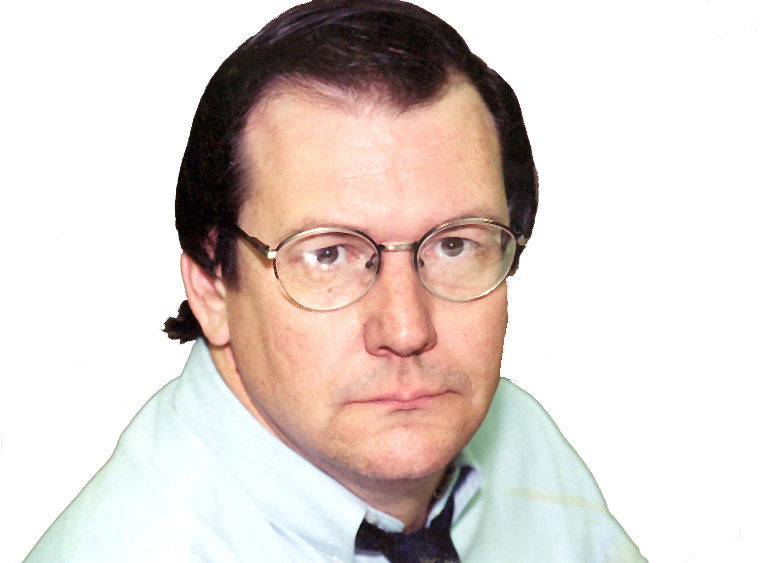Myers: The news war against nuance
Journalists have some nasty habits. One is that when they break stories they become so invested in those stories that they sometimes seek validation that they were right – by affecting the outcome.
I remember how, in the late 1970s, the Los Angeles Times began publication of a series of reports critical of coroner Thomas Noguchi. And in an unseemly display, the newspaper seemed to try to drive him out of office in order to justify its coverage. Noguchi was fired, then cleared by a grand jury but not reinstated but instead exiled to an obscure office.
That kind of behavior is encouraged by journalism awards, whose rules make awards more likely when “actions [are] taken and results accomplished” as a result of news coverage. Merely getting information to the public is not necessarily enough for professional recognition. Bagging the head of a public official increases chances of an award. This naturally creates a conflict of interest for journalists. Not only do they gain an incentive for piling on the official, but they can end up subtly pressuring whoever controls the fate of the official.
Some public figures accused of wrongdoing end up going through an ordeal that is made more difficult by news coverage, only to be cleared.
When Nevada’s lieutenant governor was charged by Attorney General Catherine Cortez Masto in 2008, there was something malodorous about the prosecution.
Krolicki was charged with four felony charges of misappropriating state funds and false accounting while state treasurer, but the case reeked of politics and of gaming the system – particularly since no money ever went missing. Krolicki was a Republican, Cortez Masto a Democrat, and Democratic state treasurer Kate Marshall had been promoting bad publicity for Krolicki.
In addition, Krolicki’s chief of staff was indicted on two lesser charges in what was believed to be an effort to get her to testify against her boss. The case involved, at best, mismanagement, not dishonesty, and was a waste of time. The whole prosecution was thrown out of court. Yet there were journalists who kept using the details of the case to write against him.
Recently Washoe County School Board member Nick Smith was accused of sexual harassment of a teenager at the restaurant where he worked. The story evaporated almost as soon as it began. When school district officials informed him they knew of the charges, he promptly resigned as a school board member, a development that was on the local front page above the fold. His news value then dropped by about ninety percent because he was no longer a public figure or an elected official, yet the newspaper kept him on the front page above the fold when the next developments in the case hit in his private employment. There was considerable comment in the community about how difficult it was becoming for Smith to move on with his life, in whatever way that would be.
Then there’s the way we produce news coverage that is wholly lacking in nuance when some public figure is involved in controversy. The recent disputes involving Nevada higher education chancellor Dan Klaich is a good example of that. The immediate disputes were covered with virtually no context, with little indication of whether Klaich had a history of such problems, and whether the rest of his career merited such condemnation.
I first encountered Klaich at Reno High School, where he was a class officer and I was newspaper editor, confirming the notion expressed by a friend of Kurt Vonnegut who said our roles in life are set in high school. Because I was made aware of Klaich early, I naturally paid attention as his career unfolded, and so I know that there is more to that career than the recent problems he has experienced.
Klaich is an attorney, but he never saw that as his whole identity. At one point, for instance, he left his law practice to promote an alternative vehicle fuel called A-55 which was tested in local bus lines and was interesting enough that corporate giant Caterpillar joined the little Nevada company (and then, according to an arbitrator, defrauded the A-55 firm).
Klaich served as a Nevada regent, later becoming a vice chancellor and often putting out fires set in the Nevada Legislature by chancellor Jim Rogers.
It’s unfortunate that reporters who covered those problems didn’t make an effort to portray the whole person.
Should any public official be defined by the latest events in his career, particularly if those are the first events that reflect on him negatively?
Dennis Myers is an award-winning journalist who has reported on Nevada’s capital, government and politics for several decades. He has also served as Nevada’s chief deputy secretary of state.











